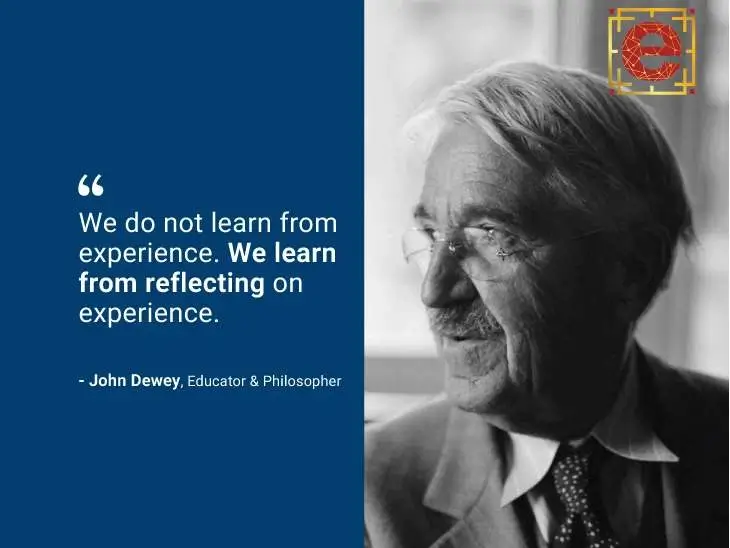Education vs Experience: Which is more valuable in the Real World?
Exclusive Insights

Your CV will be crucial to landing a new job, regardless of whether you're considering changing careers or joining the workforce for the first time. When hiring, companies are most interested in two things from your CV: your education and experience. So which is more valuable for getting your ideal career, experience or education? Let's dive right in.
Philosophy of John Dewey
John Dewey was critical of both progressive and traditional education because he believed both lacked a well-developed philosophy of experience, presenting problems. The foundation of Dewey's progressive learning theory is that individuals—including young people—are more than empty vessels waiting to be filled with information from elementary school through college. Dewey proposed that students arrange fact-based comprehension through meta-cognition rather than relying solely on prior experiences, beliefs, and knowledge. As a result, the educator's job is to create an educational experience.
This strategy clearly explains how to land a fantastic career. Education is the key to living a life that blossoms into better experiences.
What distinguishes Experience from Education?
We must first define each term and its differences before discussing one of the most hotly contested debates in the recruitment industry: education vs. experience.
Education is applying what you learn from textbooks or instructors to hypothetical situations. When someone is looking for work, their education typically refers to their university degree or other higher education. On the other hand, experience teaches through doing practical activities first hand and immersing oneself in real-world scenarios.
The Advantages of Education
Having recently graduated from high school, you are unlikely to have a significant quantity of relevant experience, which could make it more difficult for you to get employment. If training isn't offered on the job, earning a university degree might be a good choice for you in this situation since it will provide you with specialized knowledge and role-specific abilities that are necessary for some businesses.
While attending university, you can acquire transferable skills, such as research, critical thinking, communication, and presentation abilities, which are essential for your future profession. In a similar vein, a university setting offers ample opportunities to acquire life skills. Students from many backgrounds come together on university campuses, where they can learn to value variety, develop fresh perspectives on the world, and become more independent.
The Importance of Experience
Acquiring significant work experience has numerous advantages that might aid in impressing employers and landing a job.
Working in a professional setting will allow you to gain both role-specific skills, which will change based on your career, and transferable abilities, like communication, time management, and problem-solving. Research indicates that theoretical knowledge is less profound than practical knowledge, and we are also more likely to remember the information and be able to use it in a larger context.
The best part is that you can choose from various work experience options to discover something that appeals to you and fits your preferred learning method. Work placements, job shadowing, and internships fall under this category. Participating in work experience also enables you to use what you've learned and advance your abilities when combined with a university degree.
Which do companies value more, Education or experience?
Not every university degree is everything to get a Job. Sure, studying at university can teach you much, but textbooks can only teach you certain things, and tests are not a reliable indicator of your skills and potential. You can learn so much more outside of the classroom as well. Similarly, a university degree can give you a foundational understanding, allowing you to expand your knowledge with experience.
Suppose you possess valuable talents from a previous work, an unrelated degree, or extracurricular activities. In that case, you can secure your ideal job even if you don't match every need listed in the job description. It is common for professionals to seek careers unrelated to their field of study.
Fortunately, 58% of top employers prioritise graduates' work experience more than their academic standing. Consider the IT sector as an illustration. Former Google vice president of people operations Laszlo Bock claims that tech companies no longer care about hiring employees from elite colleges and that more and more people joining the technological industry don't have a degree.
FAQs
1. What are your salary expectations?
You can attempt to sidestep the subject by using a general response like "My salary expectations are in line with my experience and qualifications. "
2. What can give my dream job?
Having experience in the field and solid knowledge of it will help you land the job you want.
- Education vs Experience
- Importance of Education
- Career Advice

